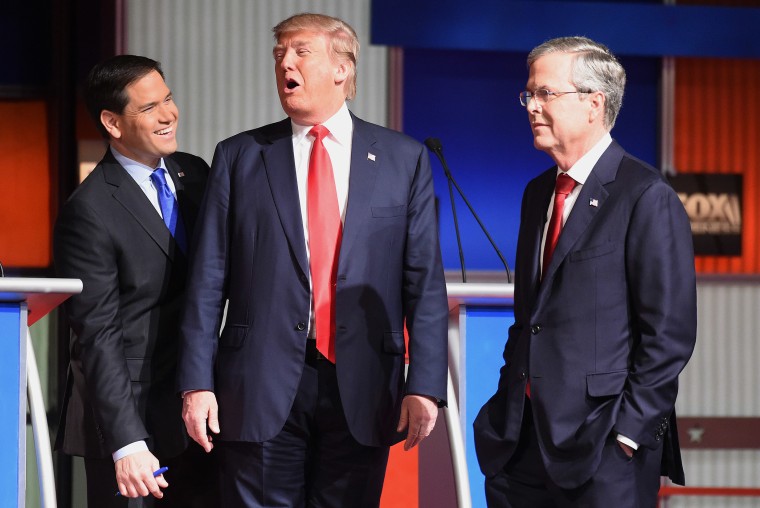Let's play a little game. I'll give you the quote, you guess whether it came from Marco Rubio or Donald Trump. Ready?
1. "The real American Dream ... today, it is dying."
2. "I don't recognize my own country."
3. When I'm president, we're going to be America again."
4. "America, your country is a great nation in decline."
5. "Barack Obama has deliberately weakened America."
6. "Let me tell you, if we don't get this election right, there may be no turning back for America."
OK, pencils down. Ready to see how you did?
The truth, of course, is that this was a trick question: all six quotes came from Rubio, who recently abandoned the "sunny optimism" that defined his 2015 candidacy, replacing it with a gloomy message of despair that's eerily similar to the pitch voters are hearing from a certain New York developer.
The Atlantic's Peter Beinart, reflecting on last week's Republican debate, made the case the other day that "the junior senator from Florida sold his soul ... for a shot at winning over the supporters of Donald Trump." Whereas Rubio used to reject Trump's approach, now the senator "piggybacks on it."
Looking at this in the larger context, it's a reminder that in many respects Trump has already won: he rose to the top of the polls, and his success forced his most competitive rivals to follow his lead. Rubio spent months resisting such a shift, deliberately -- and at times, explicitly -- telling voters Trump was wrong.
But as is usually the case with Rubio, the senator decided following was vastly easier than leading, and more likely to advance his ambitions, so principles be damned.
And who knows, maybe it'll work for the Floridian. While the optimistic, 2015 message propelled Rubio into third place, maybe Trump-esque doom will propel the senator higher.
What the senator may not appreciate, however, is the degree to which he's gambling in the name of political expediency -- abandoning the qualities that made him different, echoing the frontrunner instead of advancing on the strength of his own message.
Candidates who give up on the very qualities that make them unique tend to come up short. Just ask Rand Paul, who abandoned many of his most notable policy positions, and whose support is now so low that he couldn't quite qualify for the last prime-time debate.
